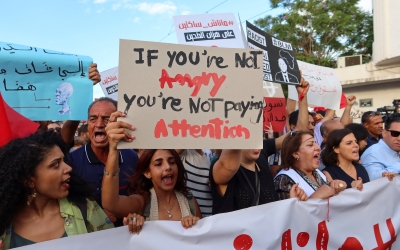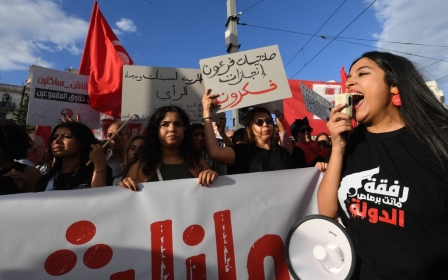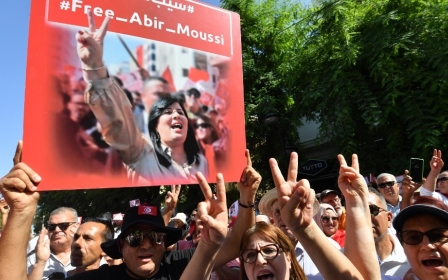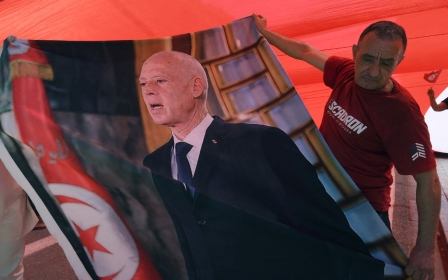Tunisia: Families of jailed politicians urge ICC to investigate abuses against Black people
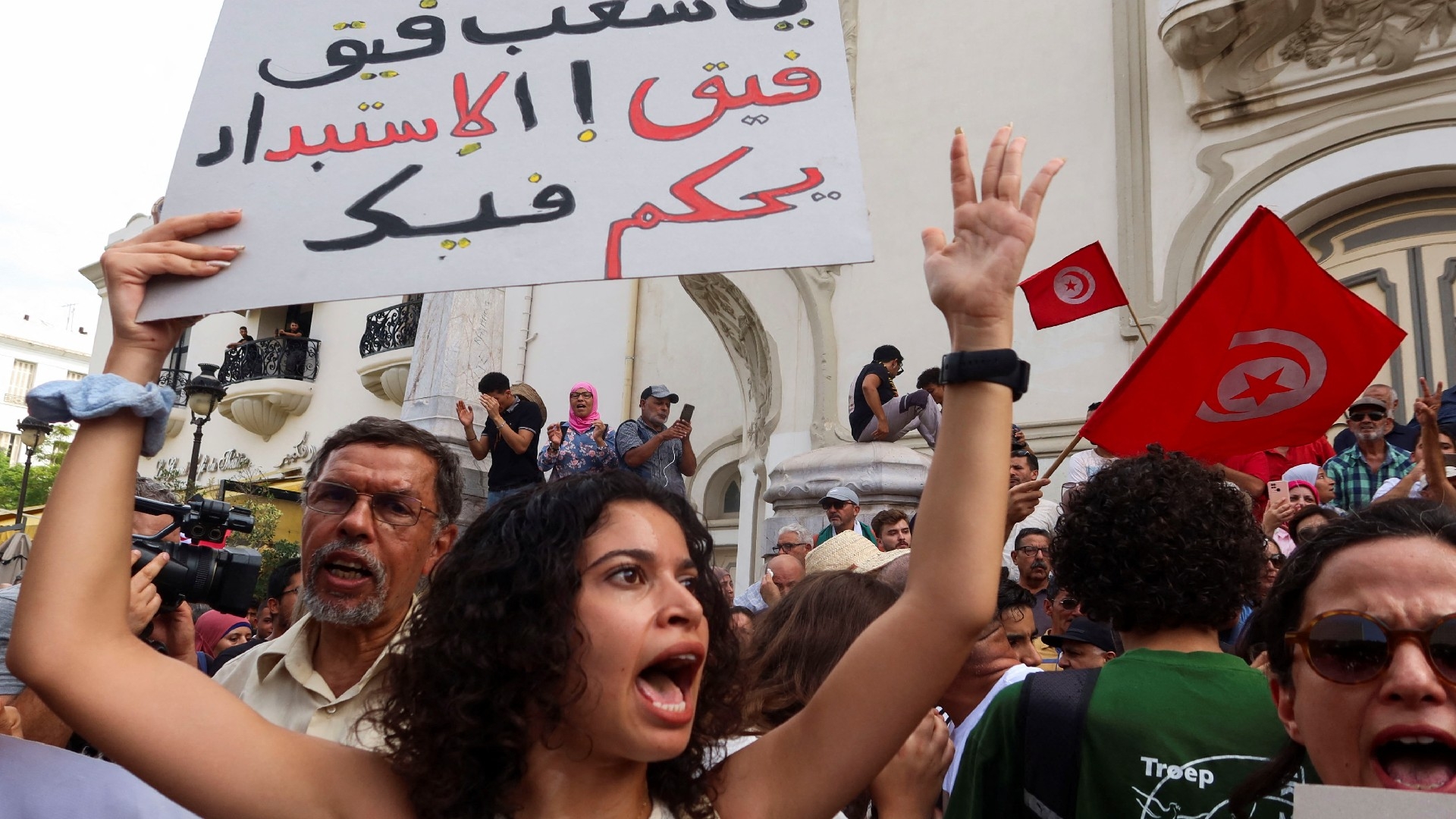
The families of jailed Tunisian opposition politicians have submitted a request to the International Criminal Court (ICC) to investigate attacks on Black people in the North African country.
Lawyers representing Rached Ghannouchi, Said Ferjani, Ghazi Chaouachi, Chaima Issa, Noureddine Bhiri and Ridha Bouziane called on the ICC to urgently investigate abuses against Black Tunisians and African economic migrants by the authorities.
They also asked the court to probe President Kais Saied’s crackdown on political opposition and civil society ahead of the upcoming election. Saied is seeking a second five-year term.
This request follows an earlier one, submitted on 5 October 2023, by the families of seven detained opposition members, asking the ICC to investigate claims of abuses against detained politicians and Black Tunisians and migrants.
Tunisia is a member of the ICC.
New MEE newsletter: Jerusalem Dispatch
Sign up to get the latest insights and analysis on Israel-Palestine, alongside Turkey Unpacked and other MEE newsletters
The latest request comes in response to new evidence that “Black African migrants are facing brutal and heartless treatment at the hands of the Tunisian authorities,” said Rodney Dixon KC, who leads the legal team.
"The ICC has the jurisdiction to investigate these alleged crimes against humanity and should act with the full force of international law to protect those most vulnerable," Dixon added.
Since September 2023, Tunisian security forces have routinely rounded up Black Africans and carried out mass expulsions to the desert borders with Algeria and Libya.
A Human Rights Watch report found that the Tunisian police, military and national guard have fuelled xenophobic attitudes and committed “serious abuses” against Black African migrants, refugees and asylum seekers, including beatings, torture, arbitrary arrests and collective expulsions.
The legal team presented new evidence showing that conditions for Black Africans expelled to the border are rapidly deteriorating, with people lacking adequate shelter, food and humanitarian aid.
Sources also reported that Tunisian authorities have set fire to tents and attacked displaced people.
'Human rights are under siege'
Tunisia, a key transit point for Sub-Saharan Africans attempting to reach Europe, has received financial support from European Union member states to help curb migration.
In March 2023, President Saied delivered a speech, widely condemned as racist and conspiratorial, targeting Sub-Saharan people.
"There has been a criminal plan since the beginning of the century to change the demographic structure of Tunisia and there are parties that received large sums of money after 2011 for the settlement of illegal immigrants from Sub-Saharan Africa," Saied said.
"The undeclared goal of the successive waves of illegal immigration is to consider Tunisia a purely African country that has no affiliation to the Arab and Islamic nations," he added.
The remarks triggered a surge in hate speech against economic migrants in the country, leading to several incidents of violence against the Sub-Saharan community.
At the same time, Saied has systematically cracked down on political opposition in Tunisia, with many opposition politicians and human rights defenders being arbitrarily detained.
In the lead-up to the presidential election, the authorities have intensified their suppression of political dissent, with the recent arrest of 97 members of the opposition Ennahda party between 12 and 13 September serving as the latest example.
“In Tunisia, the pillars of democracy and human rights are under siege, as autocracy, racism, antisemitism and hate speech rise unchecked," said Elyes Chaouachi, son of political prisoner Ghazi Chaouachi, the former secretary general of the opposition Attayar party.
"We urge the ICC and the international community to take a stand - support humanity, uphold justice and restore dignity. Our voices for freedom and equality must not go unheard,” Chaouachi added.
Middle East Eye delivers independent and unrivalled coverage and analysis of the Middle East, North Africa and beyond. To learn more about republishing this content and the associated fees, please fill out this form. More about MEE can be found here.


